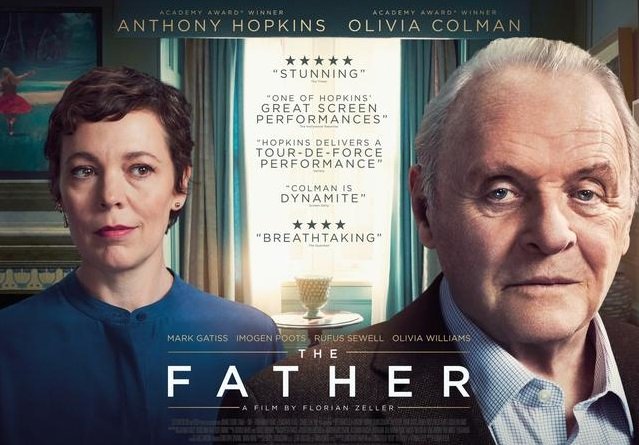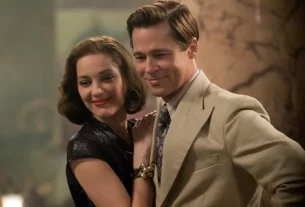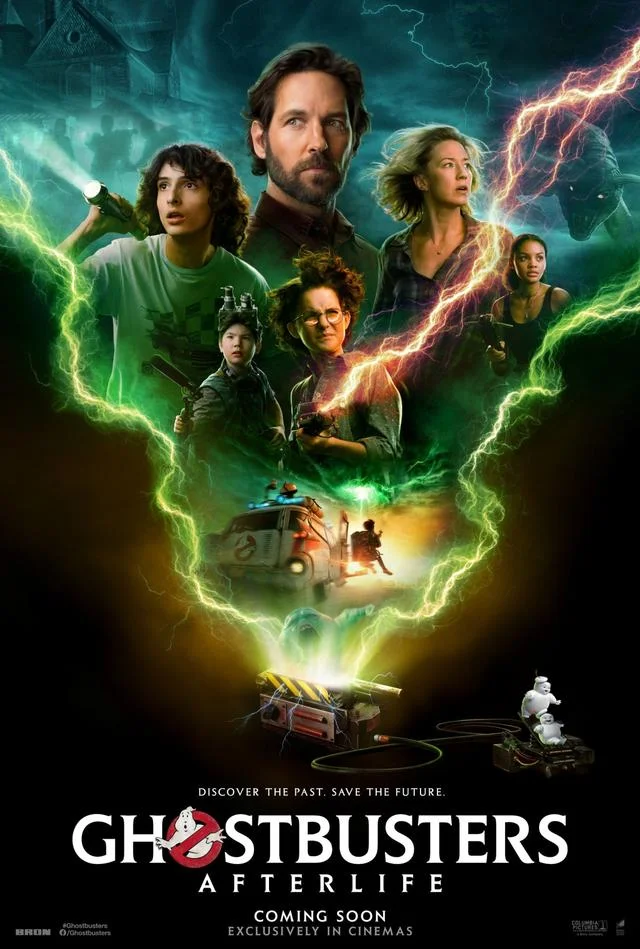“The Father” is a British drama film to be released in 2021.
“The Father” is directed by Florian Zeller and starred by actors Olivia Coleman and Anthony Hopkins.
The film tells that Anthony, who lives in London, loses his memory as he grows older, and has doubts about the people and things that appear in his life.
But even so, he refused the assistance and care arranged by his daughter Annie, which made her feel physically and mentally exhausted.
As his condition took a turn for the worse, Anthony gradually forgot his time, familiar environment, and loved ones while trying to clarify the changes he had made.
The true state of Alzheimer’s disease patients
In the 2021 Oscars shortlist announced in March, “The Father” squeezed out the high-profile “Ma Rainey’s Black Bottom” and “Da 5 Bloods” as a dark horse, and nominated for six awards including best film. Provoked discussion among fans.
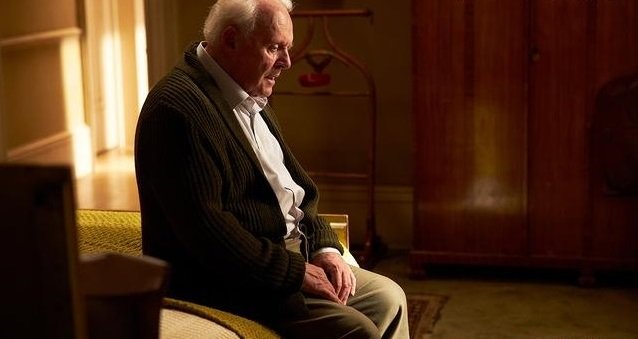
In fact, in the past few months, Anthony Hopkins, a movie star actor, has been mentioned in many year-end awards.
But I don’t know if the title “The Father” is too ordinary. People pay less attention to the film itself than the award season films such as “Nomadland” and “Minari”.
Therefore, now that “The Father” has achieved such a score, it also makes people wonder why this originally underestimated work will eventually be favored by the judges.
Related Post:Hugh Jackman + Laura Dern starred in the second “The Son” of the “Family Trilogy” .
Does “The Father” look good?
In fact, movies like “The Father” with dementia as the theme were not uncommon in the past.
In recent years, there have been several works such as “What They Had” by Hilary Swank, “Still Alice” by Julianne Moore, and “Butterfly Sleep” by Miho Nakayama.
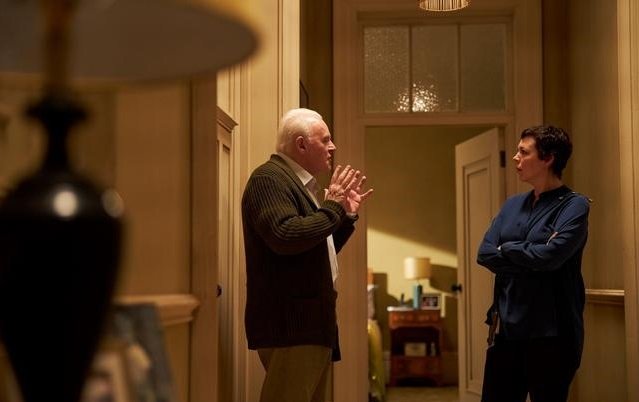
But the special thing about “The Father” this time is that it didn’t focus on portraying touching affection, or conveying positive thoughts through people’s courage to face the disease.
Rather, with the blessing of excellent actors and scripts, the plight of patients with dementia is presented quite clearly.
Although Anthony, who suffers from Alzheimer’s disease, refuses the care of others, he believes that he can take care of everything in his life.
But not only is it shown in many places that his condition is getting worse, behind his own stubborn, self-esteem, and distrustful of others, but at the same time he is also afraid of others leaving him.
Therefore, “The Father” first introduced the characters and their relationship through the interaction between the protagonist Anthony and his daughter Anne in the opening, and then entered the main story of the whole movie, so that the audience can have a deeper understanding of his current situation. Understanding.
Analysis of the plot timeline of “The Father”
I originally thought that “The Father” would gradually get worse with the illness, and described in detail the impact of dementia on father and daughter.
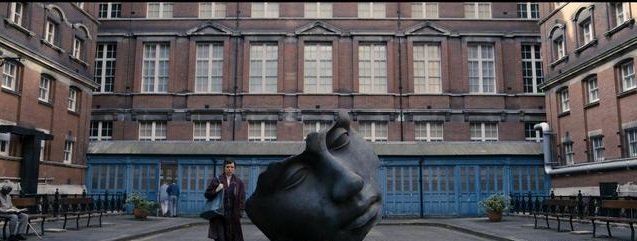
But whether it’s finding a suitable caregiver, talking to a daughter and her husband, or discussing whether to move to a nursing home, director Florian Zeller chooses a non-linear narrative approach like “Memento Mori” in such a story.
This presents the protagonist Anthony’s confusion of the sequence, causes and consequences of all events due to his dementia, and even the confusion of his face.
Basically, the timeline of the entire movie “The Father” looks like this:
- Because Anthony’s dementia symptoms became severe, his daughter Anne took him to live with her husband Paul’s house and hired a family caregiver to take care of him;
- But Anthony not only caused a lot of troubles because of his memory loss, but also because he repeatedly suspected that the nurse had stolen his watch, which made the couple’s long-planned trip to Italy ruined;
- Paul, who was dissatisfied with this, rewarded Anthony a few slaps and made Annie decide to divorce him;
- Five years later, Anne moved from London to Paris to live in a new boyfriend, so she could only send Anthony to a nursing home, occasionally coming back to see him on weekends;
- The whole story is Anthony’s review of the period after his illness in the nursing home.
What’s so special about “The Father”
As a film written and directed by the director based on the stage play of the same name created by him in 2012, “The Father” is undoubtedly an amazing masterpiece.
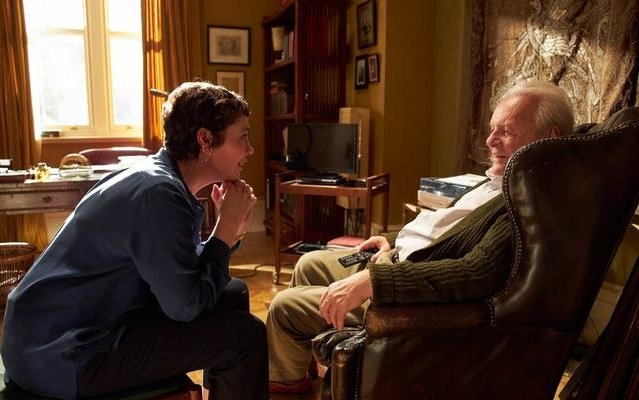
Although we viewers can see the clues from the different home, kitchen, bedroom, street scenes, and the warm, cold, and blue colors representing the hometown, daughter’s home, and nursing home in the pictures.
But unlike the sorted timeline mentioned above, “The Father” seems to advance linearly on the surface, but it is full of flaws.
A complete play is actually a whole story composed of many fragmented memories in different orders, which is actually the true state of the protagonist Anthony’s mind.
We watch “Memento Mori”, “Dunkirk”, “Tenet” and other suspenseful movies that disrupt the timeline and always pursue the so-called “brain burn”.
But what’s sad is that for Anthony, the protagonist of “The Father”, this unclear sense of confusion is a true portrayal of real life becoming messy because of the irresistible Alzheimer’s disease. .
The film narrative of “The Father” echoes with the mood of the characters and is completely integrated, allowing the audience to pass through the suspenseful story without any sense of dazzling skills.
Entering into the character’s brain world like immersively is indeed an extremely high level that even the classic “Memento Mori” has not been able to reach.
Related Post:“The Father” exposes and shoots live photos, pre-sale has started.
The meaning of the ending of “The Father”
People often say: “Memory is the foundation of constructing a person, and the key to determining who he is.”
And “The Father” uses this 97-minute film length to truly and delicately show the damage caused by dementia to the patient, as well as his inner confusion and unregulation.
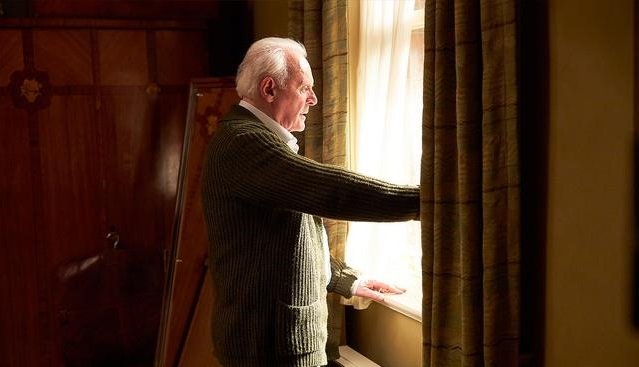
From the beginning of the sudden changes in my life, to the worsening of the condition, many scenes began to appear flaws.
Whether it’s upside-down, misplacement, repeated confusion, not knowing your beloved family, or even forgetting your own name.
We can all clearly see in the film “The Father” how severe dementia and loss of memory will affect the patient himself and the people around him who take care of him.
In addition to the constantly changing face and room furnishings in the memory, the protagonist Anthony’s very precious watch in the film is also a key image element in the entire movie “The Father”.
Although we can learn from Anthony’s repeated suspicion of the nursing and Paul stole it that he attaches great importance to the “watch”, the increasingly serious symptoms of dementia continue to deprive him of his ability to perceive “time”.
Therefore, “the preciousness of time” is also the theme that “The Father” finally wants to talk about.
“The Father” actor Anthony Hopkins
Whether it is Anthony’s aging body, or the fading connection and chance of getting along between the daughter and the elderly father.
Watching the ending of “The Father”, he confused all memories with human faces in the nursing home, like a big tree with all its leaves lost and only withered branches.
As audiences, how can we not cherish the time we still have, learn to enjoy life, work hard to practice our ideals, and accompany those cherished people around us?
Anthony Hopkins was nominated for a supporting actor in “The Two Popes” last year, this time as the oldest actor nominee in Oscar history.
Not only does it fully interpret that patients with dementia are full of joy in the last second, but in the next second, they may immediately change their attitude 180 degrees due to forgetting.
That kind of stubbornness, anger, frustration, confusion, and fear exist at the same time, but they deny that they are sick.
Explaining what I have experienced rationally to the people around me, and trying to struggle in the inescapable and fading memory of the performance is uncomfortable to see, it is definitely worthy of the Oscar to give him an award.
“The Father” film review conclusion
On the whole, it is hard to believe that “The Father” will turn out to be the first feature film of director Florian Zeller, although the film’s title is really easy to be overlooked.
But besides that, the whole film’s theme of Alzheimer’s disease is not only convincing in the accuracy of the script, but also very clever in the scheduling and editing of the scenes.
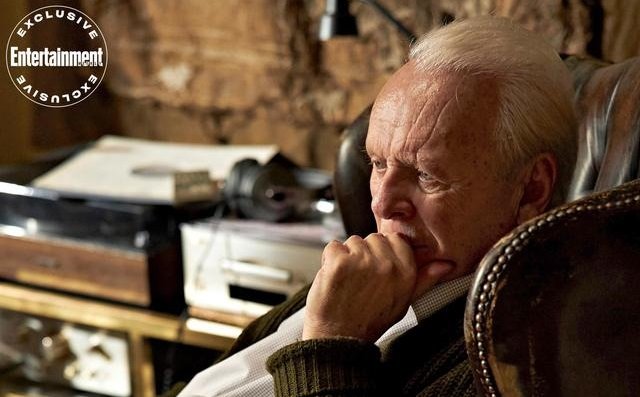
Not to mention the almost impeccable acting performances of the two main actors, Anthony Hopkins and Olivia Coleman.
This makes the whole movie “The Father” an excellent work that can move people’s hearts, bring a strong emotional impact to all audiences, and is thought-provoking.
The ultimate goal of “The Father” is to hope that through this story and the very special expression technique of deliberately disrupting the timeline in the film, the audience can truly understand the world that the demented people have previously known. A desperate situation that collapses, but feels powerless about it.
Learn to be tolerant, considerate and patient, and give the greatest affirmation to those caregivers who are still reluctant to give up. I believe that audiences with sick elders in their homes can resonate deeply with this.
Related Post:Anthony Hopkins: How does the 83-year-old changeable actor become a god step by step?
